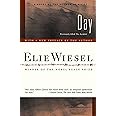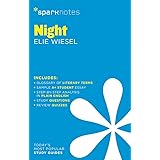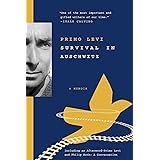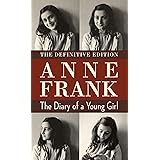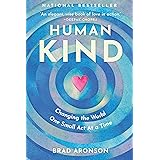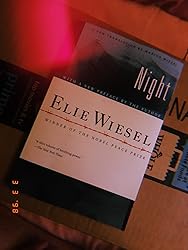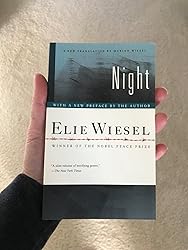
Enjoy fast, free delivery, exclusive deals, and award-winning movies & TV shows with Prime
Try Prime
and start saving today with fast, free delivery
Amazon Prime includes:
Fast, FREE Delivery is available to Prime members. To join, select "Try Amazon Prime and start saving today with Fast, FREE Delivery" below the Add to Cart button.
Amazon Prime members enjoy:- Cardmembers earn 5% Back at Amazon.com with a Prime Credit Card.
- Unlimited Free Two-Day Delivery
- Streaming of thousands of movies and TV shows with limited ads on Prime Video.
- A Kindle book to borrow for free each month - with no due dates
- Listen to over 2 million songs and hundreds of playlists
- Unlimited photo storage with anywhere access
Important: Your credit card will NOT be charged when you start your free trial or if you cancel during the trial period. If you're happy with Amazon Prime, do nothing. At the end of the free trial, your membership will automatically upgrade to a monthly membership.





Download the free Kindle app and start reading Kindle books instantly on your smartphone, tablet, or computer - no Kindle device required.
Read instantly on your browser with Kindle for Web.
Using your mobile phone camera - scan the code below and download the Kindle app.

Image Unavailable
Color:
-

-
-
- To view this video download Flash Player
-

-

-
 3 VIDEOS
3 VIDEOS -

 Audible sample Sample
Audible sample Sample 


Night Paperback – January 16, 2006
Purchase options and add-ons
Night offers much more than a litany of the daily terrors, everyday perversions, and rampant sadism at Auschwitz and Buchenwald; it also eloquently addresses many of the philosophical as well as personal questions implicit in any serious consideration of what the Holocaust was, what it meant, and what its legacy is and will be.
- Print length120 pages
- LanguageEnglish
- PublisherHill and Wang
- Publication dateJanuary 16, 2006
- Dimensions5.5 x 0.39 x 8.26 inches
- ISBN-109780374500016
- ISBN-13978-0374500016
- Lexile measure570L
The Amazon Book Review
Book recommendations, author interviews, editors' picks, and more. Read it now.
Frequently bought together

Similar items that may ship from close to you
 The ghetto was ruled by neither German nor Jew; it was ruled by delusion.Highlighted by 7,389 Kindle readers
The ghetto was ruled by neither German nor Jew; it was ruled by delusion.Highlighted by 7,389 Kindle readers How was it possible that men, women, and children were being burned and that the world kept silent?Highlighted by 6,420 Kindle readers
How was it possible that men, women, and children were being burned and that the world kept silent?Highlighted by 6,420 Kindle readers Three days later, a new decree: every Jew had to wear the yellow star.Highlighted by 5,354 Kindle readers
Three days later, a new decree: every Jew had to wear the yellow star.Highlighted by 5,354 Kindle readers
Editorial Reviews
Amazon.com Review
Review
“A slim volume of terrifying power.” ―The New York Times
“Required reading for all of humanity.” ―Oprah
“Wiesel has taken his own anguish and imaginatively metamorphosed it into art.” ―Curt Leviant, Saturday Review
“To the best of my knowledge no one has left behind him so moving a record.” ―Alfred Kazin
“What makes this book so chilling is not the pretense of what happened but a very real description of every thought, fear and the apathetic attitude demonstrated as a response . . . Night, Wiesel's autobiographical masterpiece, is a heartbreaking memoir. Wiesel has taken his painful memories and channeled them into an amazing document which chronicles his most intense emotions every step along the way.” ―Jose Del Real, Anchorage Daily News
“As a human document, Night is almost unbearably painful, and certainly beyond criticism.” ―A. Alvarez, Commentary
From the Inside Flap
About the Author
Elie Wiesel is the author of more than fifty books, including Night, his harrowing account of his experiences in Nazi concentration camps. The book, first published in 1955, was selected for Oprah's Book Club in 2006. Wiesel is Andrew W. Mellon Professor in the Humanities at Boston University, and lives with his family in New York City. He was awarded the Nobel Peace Prize in 1986.
Excerpt. © Reprinted by permission. All rights reserved.
Night
By ELIE WIESELHILL AND WANG
Copyright © 1985 Elie WieselAll right reserved.
ISBN: 978-0-374-50001-6
Chapter One
They called him Moishe the Beadle, as if his entire life he had never had a surname. He was the jack-of-all-trades in a Hasidic house of prayer, a shtibl. The Jews of Sighet-the little town in Transylvania where I spent my childhood-were fond of him. He was poor and lived in utter penury. As a rule, our townspeople, while they did help the needy, did not particularly like them. Moishe the Beadle was the exception. He stayed out of people's way. His presence bothered no one. He had mastered the art of rendering himself insignificant, invisible.Physically, he was as awkward as a clown. His waiflike shyness made people smile. As for me, I liked his wide, dreamy eyes, gazing off into the distance. He spoke little. He sang, or rather he chanted, and the few snatches I caught here and there spoke of divine suffering, of the Shekhinah in Exile, where, according to Kabbalah, it awaits its redemption linked to that of man.
I met him in 1941. I was almost thirteen and deeply observant. By day I studied Talmud and by night I would run to the synagogue to weep over the destruction of the Temple.
One day I asked my father to find me a master who could guide me in my studies of Kabbalah. "You are too young for that. Maimonides tells us that one must be thirty before venturing into the world of mysticism, a world fraught with peril. First you must study the basic subjects, those you are able to comprehend."
My father was a cultured man, rather unsentimental. He rarely displayed his feelings, not even within his family, and was more involved with the welfare of others than with that of his own kin. The Jewish community of Sighet held him in highest esteem; his advice on public and even private matters was frequently sought. There were four of us children. Hilda, the eldest; then Bea; I was the third and the only son; Tzipora was the youngest.
My parents ran a store. Hilda and Bea helped with the work. As for me, my place was in the house of study, or so they said.
"There are no Kabbalists in Sighet," my father would often tell me.
He wanted to drive the idea of studying Kabbalah from my mind. In vain. I succeeded on my own in finding a master for myself in the person of Moishe the Beadle.
He had watched me one day as I prayed at dusk.
"Why do you cry when you pray?" he asked, as though he knew me well.
"I don't know," I answered, troubled.
I had never asked myself that question. I cried because ... because something inside me felt the need to cry. That was all I knew.
"Why do you pray?" he asked after a moment.
Why did I pray? Strange question. Why did I live? Why did I breathe?
"I don't know," I told him, even more troubled and ill at ease. "I don't know."
From that day on, I saw him often. He explained to me, with great emphasis, that every question possessed a power that was lost in the answer ...
Man comes closer to God through the questions he asks Him, he liked to say. Therein lies true dialogue. Man asks and God replies. But we don't understand His replies. We cannot understand them. Because they dwell in the depths of our souls and remain there until we die. The real answers, Eliezer, you will find only within yourself.
"And why do you pray, Moishe?" I asked him.
"I pray to the God within me for the strength to ask Him the real questions."
We spoke that way almost every evening, remaining in the synagogue long after all the faithful had gone, sitting in the semi-darkness where only a few half-burnt candles provided a flickering light.
One evening, I told him how unhappy I was not to be able to find in Sighet a master to teach me the Zohar, the Kabbalistic works, the secrets of Jewish mysticism. He smiled indulgently. After a long silence, he said, "There are a thousand and one gates allowing entry into the orchard of mystical truth. Every human being has his own gate. He must not err and wish to enter the orchard through a gate other than his own. That would present a danger not only for the one entering but also for those who are already inside."
And Moishe the Beadle, the poorest of the poor of Sighet, spoke to me for hours on end about the Kabbalah's revelations and its mysteries. Thus began my initiation. Together we would read, over and over again, the same page of the Zohar. Not to learn it by heart but to discover within the very essence of divinity.
And in the course of those evenings I became convinced that Moishe the Beadle would help me enter eternity, into that time when question and answer would become ONE.
AND THEN, one day all foreign Jews were expelled from Sighet. And Moishe the Beadle was a foreigner.
Crammed into cattle cars by the Hungarian police, they cried silently. Standing on the station platform, we too were crying. The train disappeared over the horizon; all that was left was thick, dirty smoke.
Behind me, someone said, sighing, "What do you expect? That's war ..."
The deportees were quickly forgotten. A few days after they left, it was rumored that they were in Galicia, working, and even that they were content with their fate.
Days went by. Then weeks and months. Life was normal again. A calm, reassuring wind blew through our homes. The shopkeepers were doing good business, the students lived among their books, and the children played in the streets.
One day, as I was about to enter the synagogue, I saw Moishe the Beadle sitting on a bench near the entrance.
He told me what had happened to him and his companions. The train with the deportees had crossed the Hungarian border and, once in Polish territory, had been taken over by the Gestapo. The train had stopped. The Jews were ordered to get off and onto waiting trucks. The trucks headed toward a forest. There everybody was ordered to get out. They were forced to dig huge trenches. When they had finished their work, the men from the Gestapo began theirs. Without passion or haste, they shot their prisoners, who were forced to approach the trench one by one and offer their necks. Infants were tossed into the air and used as targets for the machine guns. This took place in the Galician forest, near Kolomay. How had he, Moishe the Beadle, been able to escape? By a miracle. He was wounded in the leg and left for dead ...
Day after day, night after night, he went from one Jewish house to the next, telling his story and that of Malka, the young girl who lay dying for three days, and that of Tobie, the tailor who begged to die before his sons were killed.
Moishe was not the same. The joy in his eyes was gone. He no longer sang. He no longer mentioned either God or Kabbalah. He spoke only of what he had seen. But people not only refused to believe his tales, they refused to listen. Some even insinuated that he only wanted their pity, that he was imagining things. Others flatly said that he had gone mad.
As for Moishe, he wept and pleaded:
"Jews, listen to me! That's all I ask of you. No money. No pity. Just listen to me!" he kept shouting in synagogue, between the prayer at dusk and the evening prayer.
Even I did not believe him. I often sat with him, after services, and listened to his tales, trying to understand his grief. But all I felt was pity.
"They think I'm mad," he whispered, and tears, like drops of wax, flowed from his eyes.
Once, I asked him the question: "Why do you want people to believe you so much? In your place I would not care whether they believed me or not ..."
He closed his eyes, as if to escape time.
"You don't understand," he said in despair. "You cannot understand. I was saved miraculously. I succeeded in coming back. Where did I get my strength? I wanted to return to Sighet to describe to you my death so that you might ready yourselves while there is still time. Life? I no longer care to live. I am alone. But I wanted to come back to warn you. Only no one is listening to me ..."
This was toward the end of 1942.
Thereafter, life seemed normal once again. London radio, which we listened to every evening, announced encouraging news: the daily bombings of Germany and Stalingrad, the preparation of the Second Front. And so we, the Jews of Sighet, waited for better days that surely were soon to come.
I continued to devote myself to my studies, Talmud during the day and Kabbalah at night. My father took care of his business and the community. My grandfather came to spend Rosh Hashanah with us so as to attend the services of the celebrated Rebbe of Borsche. My mother was beginning to think it was high time to find an appropriate match for Hilda.
Thus passed the year I943.
SPRING 1944. Splendid news from the Russian Front. There could no longer be any doubt: Germany would be defeated. It was only a matter of time, months or weeks, perhaps.
The trees were in bloom. It was a year like so many others, with its spring, its engagements, its weddings, and its births.
The people were saying, "The Red Army is advancing with giant strides ... Hitler will not be able to harm us, even if he wants to ..."
Yes, we even doubted his resolve to exterminate us.
Annihilate an entire people? Wipe out a population dispersed throughout so many nations? So many millions of people! By what means? In the middle of the twentieth century!
And thus my elders concerned themselves with all manner of things-strategy, diplomacy, politics, and Zionism-but not with their own fate.
Even Moishe the Beadle had fallen silent. He was weary of talking. He would drift through synagogue or through the streets, hunched over, eyes cast down, avoiding people's gaze.
In those days it was still possible to buy emigration certificates to Palestine. I had asked my father to sell everything, to liquidate everything, and to leave.
"I am too old, my son," he answered. "Too old to start a new life. Too old to start from scratch in some distant land ..."
Budapest radio announced that the Fascist party had seized power. The regent Mikls Horthy was forced to ask a leader of the pro-Nazi Nyilas party to form a new government.
Yet we still were not worried. Of course we had heard of the Fascists, but it was all in the abstract. It meant nothing more to us than a change of ministry.
The next day brought really disquieting news: German troops had penetrated Hungarian territory with the government's approval.
Finally, people began to worry in earnest. One of my friends, Moishe Chaim Berkowitz, returned from the capital for Passover and told us, "The Jews of Budapest live in an atmosphere of fear and terror. Anti-Semitic acts take place every day, in the streets, on the trains. The Fascists attack Jewish stores, synagogues. The situation is becoming very serious ..."
The news spread through Sighet like wildfire. Soon that was all people talked about. But not for long. Optimism soon revived: The Germans will not come this far. They will stay in Budapest. For strategic reasons, for political reasons ...
In less than three days, German Army vehicles made their appearance on our streets.
ANGUISH. German soldiers-with their steel helmets and their death's-head emblem. Still, our first impressions of the Germans were rather reassuring. The officers were billeted in private homes, even in Jewish homes. Their attitude toward their hosts was distant but polite. They never demanded the impossible, made no offensive remarks, and sometimes even smiled at the lady of the house. A German officer lodged in the Kahns' house across the street from us. We were told he was a charming man, calm, likable, and polite. Three days after he moved in, he brought Mrs. Kahn a box of chocolates. The optimists were jubilant: "Well? What did we tell you? You wouldn't believe us. There they are, your Germans. What do you say now? Where is their famous cruelty?"
The Germans were already in our town, the Fascists were already in power, the verdict was already out-and the Jews of Sighet were still smiling.
THE EIGHT DAYS of Passover.
The weather was sublime. My mother was busy in the kitchen. The synagogues were no longer open. People gathered in private homes: no need to provoke the Germans.
Almost every rabbi's home became a house of prayer.
We drank, we ate, we sang. The Bible commands us to rejoice during the eight days of celebration, but our hearts were not in it. We wished the holiday would end so as not to have to pretend.
On the seventh day of Passover, the curtain finally rose: the Germans arrested the leaders of the Jewish community.
From that moment on, everything happened very quickly. The race toward death had begun.
First edict: Jews were prohibited from leaving their residences for three days, under penalty of death.
Moishe the Beadle came running to our house.
"I warned you," he shouted. And left without waiting for a response.
The same day, the Hungarian police burst into every Jewish home in town: a Jew was henceforth forbidden to own gold, jewelry, or any valuables. Everything had to be handed over to the authorities, under penalty of death. My father went down to the cellar and buried our savings.
As for my mother, she went on tending to the many chores in the house. Sometimes she would stop and gaze at us in silence.
Three days later, a new decree: every Jew had to wear the yellow star.
Some prominent members of the community came to consult with my father, who had connections at the upper levels of the Hungarian police; they wanted to know what he thought of the situation. My father's view was that it was not all bleak, or perhaps he just did not want to discourage the others, to throw salt on their wounds:
"The yellow star? So what? It's not lethal ..."
(Poor Father! Of what then did you die?)
But new edicts were already being issued. We no longer had the right to frequent restaurants or cafs, to travel by rail, to attend synagogue, to be on the streets after six o'clock in the evening.
Then came the ghettos.
TWO GHETTOS were created in Sighet. A large one in the center of town occupied four streets, and another smaller one extended over several alleyways on the outskirts of town. The street we lived on, Serpent Street, was in the first ghetto. We therefore could remain in our house. But, as it occupied a corner, the windows facing the street outside the ghetto had to be sealed. We gave some of our rooms to relatives who had been driven out of their homes.
Little by little life returned to "normal." The barbed wire that encircled us like a wall did not fill us with real fear. In fact, we felt this was not a bad thing; we were entirely among ourselves. A small Jewish republic ... A Jewish Council was appointed, as well as a Jewish police force, a welfare agency, a labor committee, a health agency-a whole governmental apparatus.
People thought this was a good thing. We would no longer have to look at all those hostile faces, endure those hate-filled stares. No more fear. No more anguish. We would live among Jews, among brothers ...
Of course, there still were unpleasant moments. Every day, the Germans came looking for men to load coal into the military trains. Volunteers for this kind of work were few. But apart from that, the atmosphere was oddly peaceful and reassuring.
Most people thought that we would remain in the ghetto until the end of the war, until the arrival of the Red Army. Afterward everything would be as before. The ghetto was ruled by neither German nor Jew; it was ruled by delusion.
SOME TWO WEEKS before Shavuot. A sunny spring day, people strolled seemingly carefree through the crowded streets. They exchanged cheerful greetings. Children played games, rolling hazelnuts on the sidewalks. Some schoolmates and I were in Ezra Malik's garden studying a Talmudic treatise.
Night fell. Some twenty people had gathered in our courtyard. My father was sharing some anecdotes and holding forth on his opinion of the situation. He was a good storyteller.
Suddenly, the gate opened, and Stern, a former shopkeeper who now was a policeman, entered and took my father aside. Despite the growing darkness, I could see my father turn pale.
"What's wrong?" we asked.
"I don't know. I have been summoned to a special meeting of the Council. Something must have happened."
The story he had interrupted would remain unfinished.
"I'm going right now," he said. "I'll return as soon as possible. I'll tell you everything. Wait for me."
(Continues...)
Excerpted from Nightby ELIE WIESEL Copyright ©1985 by Elie Wiesel. Excerpted by permission.
All rights reserved. No part of this excerpt may be reproduced or reprinted without permission in writing from the publisher.
Excerpts are provided by Dial-A-Book Inc. solely for the personal use of visitors to this web site.
Product details
- ASIN : 0374500010
- Publisher : Hill and Wang; Revised edition (January 16, 2006)
- Language : English
- Paperback : 120 pages
- ISBN-10 : 9780374500016
- ISBN-13 : 978-0374500016
- Lexile measure : 570L
- Item Weight : 4.8 ounces
- Dimensions : 5.5 x 0.39 x 8.26 inches
- Best Sellers Rank: #357 in Books (See Top 100 in Books)
- #2 in Jewish Holocaust History
- #4 in Historical European Biographies (Books)
- #34 in Memoirs (Books)
- Customer Reviews:
Videos
Videos for this product

1:00
Click to play video

What you need to know about Night by Elie Wiesel
One Minute Reviews

Videos for this product

4:09
Click to play video

How this book is a powerful testimony of the Holocaust
Book Chat Live

Videos for this product

0:41
Click to play video

Night (Night Trilogy)
Amazon Videos
About the author

ELIE WIESEL was awarded the Nobel Peace Prize in 1986. The author of more than fifty internationally acclaimed works of fiction and nonfiction, he was Andrew W. Mellon Professor in the Humanities and University Professor at Boston University for forty years. Wiesel died in 2016.
Customer reviews
Customer Reviews, including Product Star Ratings help customers to learn more about the product and decide whether it is the right product for them.
To calculate the overall star rating and percentage breakdown by star, we don’t use a simple average. Instead, our system considers things like how recent a review is and if the reviewer bought the item on Amazon. It also analyzed reviews to verify trustworthiness.
Learn more how customers reviews work on AmazonReviews with images
-
Top reviews
Top reviews from the United States
There was a problem filtering reviews right now. Please try again later.
Elie Wiesel’s Holocaust memoir, Night (New York, Hill and Wang, 2006, translated by Marion Wiesel), is one of the best-known and most highly acclaimed work about the Holocaust. The New York Times called the 2006 edition “a slim volume of terrifying power,” yet its power wasn’t immediately appreciated. In fact, the book may have never been written had Wiesel not approached his friend, the novelist Francois Mauriac, for an introduction to the French Prime Minister Pierre Mendes-France, whom he wanted to interview. When Mauriac, a devoted Catholic, mentioned that Mendes-France was suffering like Jesus, Elie Wiesel responded, in the heat of the moment, that ten years earlier he had seen hundreds of Jewish children suffer more than Jesus did on the cross, yet nobody spoke about their suffering. Mauriac appeared moved and suggested that Wiesel himself write about it. The young man took his friend’s advice. He began writing in Yiddish an 862-page manuscript about his experiences of the Holocaust. The Central Union of Polish Jews in Argentina published in Yiddish an abbreviated version of this book, under the title And the World Remained Silent. Wiesel later translated the text into French. He called it, more simply and symbolically, Night (La Nuit), and sent it to Mauriac, who helped Wiesel find a publisher (the literary and small publishing house Les Editions de Minuit) and wrote its Preface. The English version, published in 1960 by Arthur Wang of Hill and Wang, received strong critical acclaim despite initially modest sales. Elie Wiesel’s eloquent and informed interviews helped bring the difficult subject of the Holocaust to the center of public attention. By 2006, Oprah Winfrey selected Night for her high-profile book club, further augmenting its exposure.
This work is definitely autobiographical—an eloquent memoir documenting Wiesel’s family sufferings during the Holocaust—yet, due to its literary qualities, the text has been also read as a novel or fictionalized autobiography. The brevity, poignant dialogue, almost lyrical descriptions of human degradation and suffering, and historical accuracy of this multifaceted work render Night one of the most powerful Holocaust narratives ever written.
Elie (Eliezer) Wiesel was only 15 years old when the Nazis entered Sighet in March of 1944, a small Romanian town in Northern Transylvania which had been annexed to Hungary in 1940. At the directives of Adolf Eichmann, who took it upon himself to “cleanse” Hungary of its Jews, the situation deteriorated very quickly for the Jewish population of Sighet and other provincial towns. Within a few months, between May and July 1944, approximately 440,000 Hungarian Jews, mostly those living outside of Budapest, were deported to Auschwitz aboard 147 trains.
Wiesel’s entire family—his father Chlomo, his mother Sarah, and his sisters Tzipora, Hilda and Beatrice—suffered this fate. Among them, only Elie and two of his sisters, Hilda and Beatrice, managed to survive the Holocaust. However, since the women and the men were separated at Auschwitz upon arrival, Elie lost track of what happened to his sisters until they reunited after the war. In the concentration camps, father and son clung to each other. Night recounts their horrific experiences, which included starvation, forced labor, and a death march to Buchenwald. Being older and weaker, Chlomo becomes the target of punishment and humiliation: he’s beaten by SS officers and by other prisoners who want to steal his food. Weakened by starvation and fatigue, he dies after a savage beating in January 1945, sadly, only a few weeks before the Americans liberated the concentration camp. Throughout their tribulations, the son oscillates between a paternal sense of responsibility towards his increasingly debilitated father and regarding his father as a burden that might cost him his own life. Elie doesn’t dare intervene when the SS officer beats Chlomo, fearing that he himself will become the next victim if he tries to help his father. In the darkness and despair of Night, the instinct of self-preservation from moment to moment counteracts a lifetime of familial love. Even when Elie discovers the death of his father in the morning, he experiences through a sense of absence: not only his father’s absence, as his bunk is now occupied by another inmate, but also the lack of his own human response: “I did not weep, and it pained me that I could not weep. But I was out of tears. And deep inside me, if I could have searched the recesses of my feeble conscience, I might have found something like: Free at last!...” (112)
Night is offers a stark psychological account the process of human and moral degradation in inhumane conditions. Even the relatively few and fortunate survivors of the Nazi atrocities, such as Elie, became doubly victimized: the victims of everything they suffered at the hands of their oppressors and the victims of everything they witnessed others suffer and were unable or, perhaps more sadly, unwilling to help. Although Night focuses on the loss of humanity in the Nazi concentration camps, the author’s life would become a quest for regaining it again, in far better conditions, if at least one condition is met: caring about the suffering of others. As Wiesel explains to his audience on December 10, 1986 during his acceptance speech of the Nobel Prize in Oslo, his message to his son--and his message to the world at large—is about the empathy required to keep the Holocaust memory alive. He reminds us all, “that I have tried to keep memory alive, that I have tried to fight those who would forget. Because if we forget, we are guilty, we are accomplices. … We must take sides. Neutrality helps the oppressor, never the victim. Silence encourages the tormentor, never the tormented” (118).
Claudia Moscovici, Holocaust Memory
But most of us have no frame of reference. Nothing in our experience even remotely compares.
This "I can't believe it" mentality was also common among non-Jewish civilians who lived in Germany during the Third Reich--when Adolf Hitler was in power (1933-1945).
Even as "night" descended on Wiesel's little town--Sighet, Transylvania (Hungary)--the Jewish people could not believe what was happening. Moishe the Beadle was "deported" by the Hungarian police, crammed into a cattle car and taken to a forest in Poland to be executed with other Jews. Incredibly, Moishe escaped and returned to Sighet with his story:
"The train had stopped. The Jews were ordered to get off and onto waiting trucks. The trucks headed toward a forest. There everybody was ordered to get out. They were forced to dig huge trenches. When they had finished their work, the men from the Gestapo began theirs. Without passion or haste, they shot their prisoners, who were forced to approach the trench one by one and offer their necks. . . ."
Moishe's escape was a miracle. He was wounded in the leg and left for dead. In Sighet, he went from house to house, telling his story, but the people refused to listen. Even the young Elie Wiesel did not believe him.
The denial continued. In Jewish families about to be transported to Auschwitz, "the women were boiling eggs, roasting meat, preparing cakes, sewing backpacks."
Wiesel does not challenge us to comprehend the gas chamber deaths of his mother and little sister Tzipora. Instead, he writes what we can grasp: "Tzipora was holding Mother's hand. I saw them walking farther and farther away; Mother was stroking my sister's blond hair as if to protect her. And I walked on with my father, with the men. I didn't know that this was the moment in time and the place where I was leaving my mother and Tzipora forever."
Wiesel describes with remarkable restraint a vicious beating he receives from a Kapo:
I felt the sweat running down my back.
"A-7713!"
I stepped forward.
"A crate!" he ordered.
They brought a crate.
"Lie down on it! On your belly!"
I obeyed.
I no longer felt anything except the lashes of the whip.
"One!. . . Two!. . ." he was counting.
He took his time between lashes. Only the first really hurt. I heard him count.
"Ten. . .eleven!. . ."
His voice was calm and reached me as through a thick wall.
"Twenty-three. . ."
Two more, I thought, half unconscious.
The Kapo was waiting.
"Twenty-four. . .twenty five!"
It was over. . . .
"Listen to me, you son of a swine!" said Idek coldly. "So much for your curiosity. You shall receive five times more if you dare tell anyone what you saw! Understood?"
I nodded, once, ten times, endlessly. As if my head had decided to say yes for all eternity.
Elie Wiesel's magnificent NIGHT bridges that enormous gulf between "I can't believe it" and the mind-numbing, horrific sinking in of the realization of "Oh, dear God, this really happened." His account is straightforward, almost matter-of-fact, with a minimum of frenzy, inordinate dwelling on flames of infernos, prolonged death throes, or metaphysical discourses about evil.
He does talk about his relationship with God throughout the ordeal. And of course about his father, who was with him in Auschwitz and Buchenwald.
Why did Wiesel write this book? He tells us:
"There are those who tell me that I survived in order to write this text. I am not convinced. I don't know how I survived; I was weak, rather shy; I did nothing to save myself. A miracle? Certainly not. If heaven could or would perform a miracle for me, why not for others more deserving than myself? It was nothing more than chance. However, having survived, I needed to give some meaning to my survival. . . .
"In retrospect I must confess that I do not know, or no longer know, what I wanted to achieve with my words. I only know that without this testimony, my life as a writer--or my life, period--would not have become what it is: that of a witness who believes he has a moral obligation to try to prevent the enemy from enjoying one last victory by allowing his crimes to be erased from human memory. . . ."
I am grateful for this book and for Marion Wiesel's excellent and sensitive translation of her husband's memoir. Some great literature has come out of the Holocaust. In my opinion, Elie Wiesel's NIGHT is the best book, and certainly one of the most deeply moving among these works.
Arlene Sanders
Top reviews from other countries
Amazing. Absolutely amazing!
In western minds the holocaust seems to eclipse the mass murders attributed to Stalin and Mao Zedong (both of whom murdered greater numbers), not to mention the millions who have died due to political mistakes such as the partition of India and the cumulative horrors of nasty little wars in Vietnam, Korea, Afghanistan, Syria, Iraq, Pol Pot's genocide in Cambodia and China's annexation of Tibet and Hong Kong and the incarceration in concentration camps of millions of Uyghurs. Perhaps the atrocities inflicted on the Jews and the author of this book occurred closer to home and have received more attention in movies, news media and books?
Elie Wiesel describes how, in spite of repeated warnings, he and his family simply didn't believe that Jews were being rounded up and exterminated. Even when the Gestapo arrived and began lodging nearby, no one believed that the Germans posed a danger; they were initially charming. Elie and his family ignored rumours about the camps. Even when the family was ordered to leave their home, they rejected offers from an old maid to hide them from the Gestapo. They could never have believed what lay ahead.
While witnessing atrocities inflicted by the Germans on an industrial scale, Elie, a deeply religious man, is forced, time and again, to reconcile his faith with what he was experiencing.
Having read this book, I am surprised how ruthless the current Jews are towards the Palestinians and it is perhaps time that the international community woke up to the ethnic cleansing being perpetrated not only in Israel, but in Xinjiang, China; millions of Uyghurs removed from their homes and taken to concentration camps in the same way that the Gestapo removed Elie and his family from their home.
Elie suggests that it is when people ignore what is happening that events like the holocaust occur.
Reviewed in India on June 3, 2021




